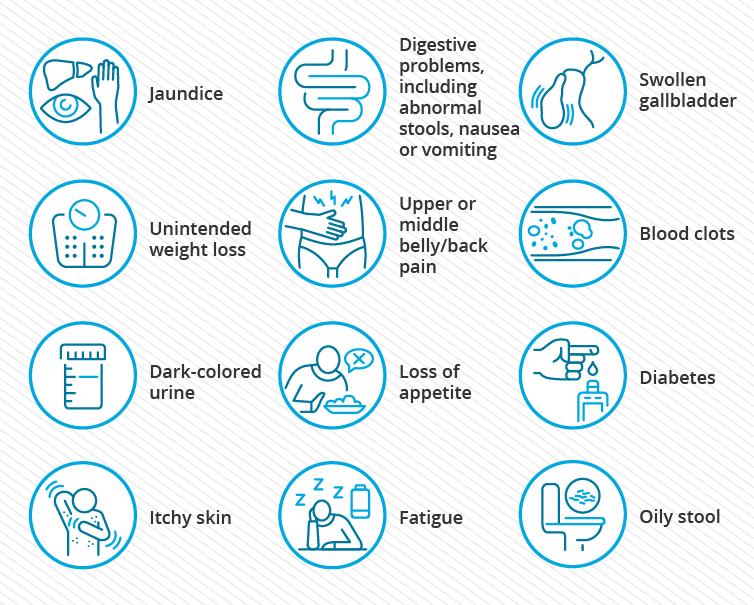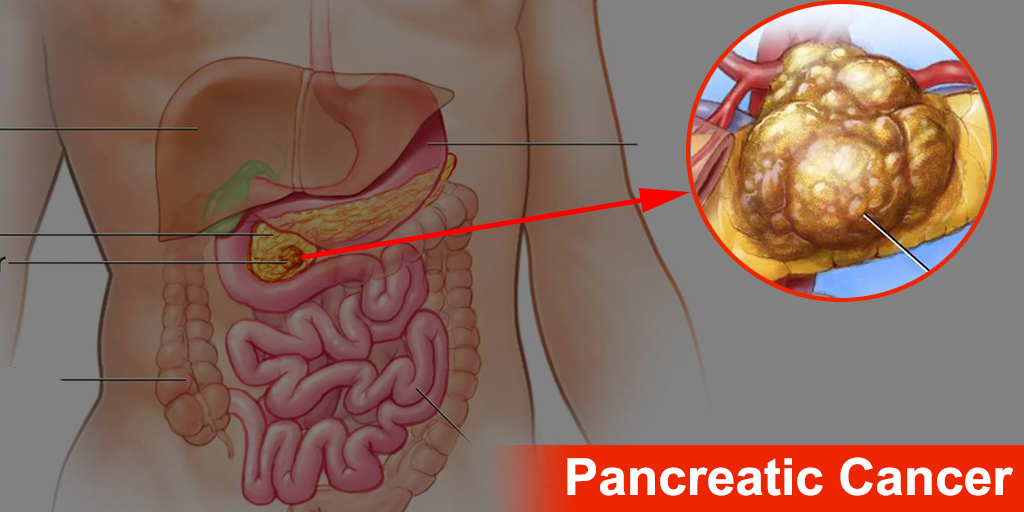Pancreas Cancer – Symptoms, Causes & Treatment
When abnormal cells in the pancreas grow uncontrollably, it leads to Pancreas Cancer (also known as pancreatic cancer). This condition often develops silently in the early stages, making timely diagnosis crucial.
What is Pancreas Cancer?
Pancreas Cancer occurs when malignant cells form in the tissues of the pancreas. Depending on where the cancer develops, it can affect digestion, metabolism, and overall health.

Common Symptoms of Pancreas Cancer
- Persistent abdominal or back pain
- Unexplained weight loss
- Loss of appetite
- Jaundice (yellowing of skin and eyes)
- Nausea or vomiting
- Fatigue


Risk Factors for Pancreas Cancer
Several factors can increase the risk, including:
- Smoking and heavy alcohol use
- Family history of pancreas cancer
- Chronic pancreatitis (long-term inflammation of the pancreas)
- Obesity and poor diet
- Diabetes
- Age (most cases occur after 60 years)
Treatment Options for Pancreas Cancer
Treatment depends on the stage, type, and overall health of the patient. Options may include:
- Surgery – to remove part or all of the pancreas
- Chemotherapy – to kill or slow down cancer cells
- Radiation therapy – to target tumours with high-energy rays
- Targeted therapy & Immunotherapy – in selected cases
A multidisciplinary team of specialists usually develops a personalized treatment plan for best results.
FAQs About Pancreas Cancer
Yes. The terms “Pancreas Cancer” and “pancreatic cancer” refer to the same disease and are often used interchangeably..
Diagnosis of Pancreas Cancer may involve imaging tests such as CT scans, MRI, or endoscopic ultrasound. A biopsy is usually required for confirmation. Blood tests for tumor markers can also support the diagnosis.
When detected early, Pancreas Cancer may be cured through surgery. Unfortunately, many cases are diagnosed in later stages, where treatment focuses on extending survival and improving quality of life.
The survival rate for Pancreas Cancer depends on the stage at diagnosis. Early detection significantly improves outcomes, while advanced stages often require multiple treatment approaches.
There is no guaranteed way to prevent Pancreas Cancer, but adopting a healthy lifestyle—such as avoiding smoking, limiting alcohol, maintaining a balanced diet, exercising regularly, and controlling diabetes—may reduce the risk.


